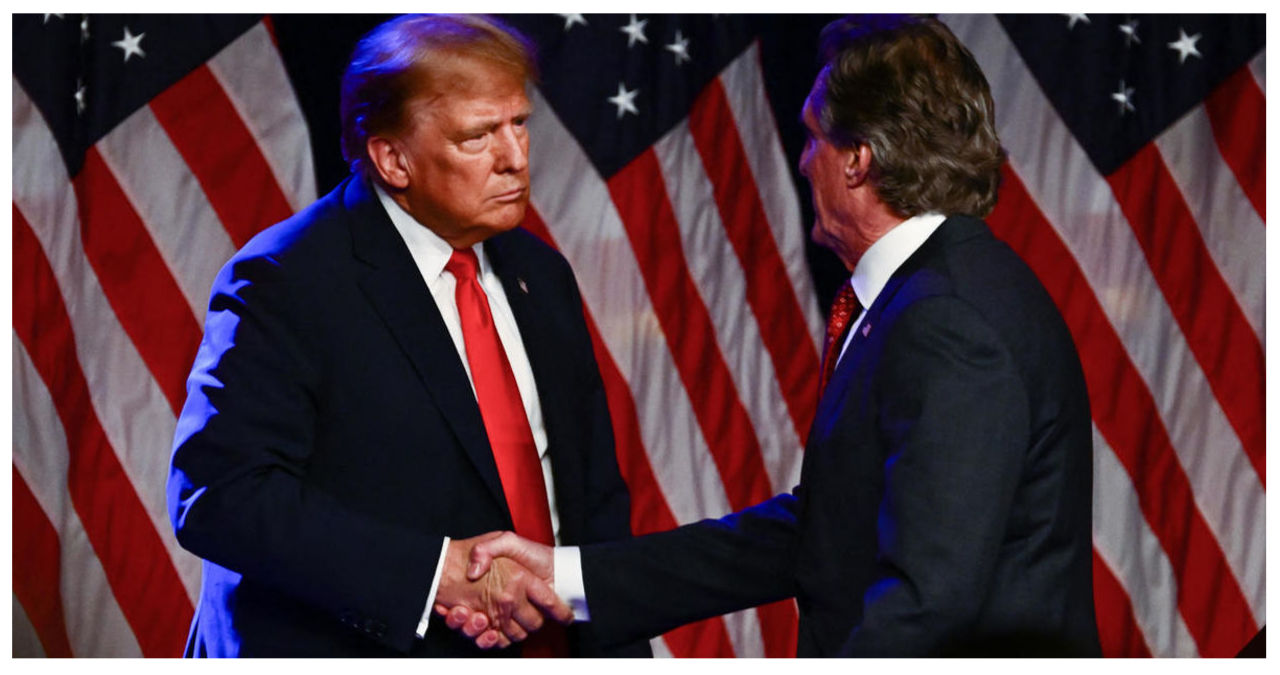Former President Donald Trump has emerged as the victor in the North Dakota Republican presidential caucuses, according to CBS News projections.
Former U.S. Ambassador to the U.N., Nikki Haley, won the Washington, D.C., Republican presidential primary, marking her first victory in the 2024 presidential nomination contests.
The focus of the White House contenders now shifts to Super Tuesday, a pivotal day in the presidential primary. Results will be coming in from 16 states, making it the largest delegate haul of any day in the primary. Both Donald Trump and President Biden, representing the Republican and Democratic parties respectively, are currently leading in their races and are expected to secure their party nominations later this month.
In North Dakota, Trump secures a resounding triumph, which grants him the full support of the state’s 29 delegates, in accordance with the existing rules.
On Tuesday, a total of 865 Republican delegates will be available for the taking. To secure the nomination, a GOP presidential candidate must obtain at least 1,215 delegates. Following his win in North Dakota’s caucuses, Trump’s delegate count stands at 276, while Haley has managed to secure 43 delegates.
There were four candidates on the ballot, which included Trump and Haley. Alongside them were David Stuckenberg, a Florida businessman, and Ryan Binkley, a Texas businessman and pastor who recently withdrew from the race. These two candidates have not received as much attention as Trump and Haley.
Retired music teacher and librarian Karen Groninger, from Almont, expressed her support for Trump, stating that she believed he was the best choice. The 76-year-old specifically mentioned Trump’s historic 2020 speech at the annual March for Life anti-abortion event in Washington, D.C., which marked the first time a sitting president had addressed the gathering. Groninger also commended Trump’s border policies as reasons for her vote.
Longtime Republican state Senator Dick Dever from Bismarck expressed his vote for Haley, although he believes her chances of winning are slim. The 72-year-old retired factory representative stated, “I often hear people express their admiration for Trump’s policies but their disapproval of his conduct. It seems like he has taken things a bit too far.”
According to caucus Chair Robert Harms, voters were urged to become active party members by paying the annual membership fee of $50. However, if they were unable to pay, they were still encouraged to participate by signing a pledge to affiliate with the party.
In North Dakota, voter registration is not required, making it the only state without this requirement. During the caucuses, participants had to adhere to the state’s official voter identification rules, which included presenting a valid driver’s license. The voting process involved in-person participation and the use of printed ballots, which will be manually counted.
In 2016, a North Dakota delegate played a crucial role in securing the Republican presidential nomination for Trump. Trump’s overwhelming popularity in North Dakota resulted in him winning approximately 63% and 65% of the state’s electoral college votes in 2016 and 2020, respectively.
During his presidency, Trump made visits to Bismarck and Mandan in 2017 to discuss tax cuts. Additionally, he held two campaign events in Fargo in 2018 to support Kevin Cramer in his successful Senate bid against Democratic Sen. Heidi Heitkamp.
North Dakota’s Democratic-NPL Party has implemented a unique approach for its presidential primary election by conducting it primarily through mail-in voting. The voting period for mail-in ballots is set from February 20 to March 30. However, in-person voting options will be available for residents of Indian reservations. The ballot includes President Biden, Rep. Dean Phillips, and six other candidates.
On March 30, there will be a ballot count in Fargo conducted by a third party. The results will be made available on the party’s website afterwards.
In both 2016 and 2020, Senator Bernie Sanders emerged victorious in the Democratic caucuses of the state.



